What beautiful ragdolls! Just wanted to chime in on the HCM disease - my husband works on the human version of the disease. These are my non-doctor, non-medical person impressions:
It is a dominant disease, meaning that only one bad copy of a gene is needed to cause disease. Different mutations will cause different forms or levels of severity of the disease. However, even among those with the same genetic mutation, there is variability in disease severity and onset.
The breeder using the term "carrier" is not really the right idea as that term is an animal is heterozygous (one bad/one good gene) with a recessive disease. For recessive diseases, you need two bad copies of the gene to have the disease so a carrier is disease- and symptom-free. Animals heterozygous for HCM may or may not show disease symptoms, but its hard to call them disease free because of the nature of the disease - it can easily lurk undetected in animals that do have the disease and are at risk of things like sudden cardiac death.
At least in humans, people walk around all the time with HCM and don't know it until they suddenly drop dead or suffer a scarey arrythmia from which they somehow recover and survive. While some HCM patients do develop heart failure (which is a progressive situation) and that leads to their diagnosis, many others show no symptoms until they have a sudden death event (or a family member is diagnosed, leading to family genetic testing). So it seems entirely possible that HCM studs/queens in a breeding program could be undiagnosed, and yet those cats still have the disease. Even if one cat happens to die suddenly it could remain an unexplained death with no diagnosis.
But even with all this bad news I don't think HCM is the worst news possible, Lynn. The disease incidence in the US is 1:500 for humans so lots of people have this and live with it everyday. You should just enjoy him for however long you are lucky enough to have him in your life. There may be simple drugs that your vet might prescribe but I don't know what the standard is! With humans, one of the big things is exercise guidelines but I don't know how you'd implement that with a cat given their general mode of exercise! In humans, one is supposed to engage in lots of low level exercise, and high exertion is prohibited. Nothing over a 6 on a 10-point exertion scale, no competitive athletics, etc. It increases the likelihood of starting a bad rhythm and having a sudden death event. At the same time you want to keep the heart in shape (such that normal life activities like walking up stairs do not require high levels of exertion) hence the recommendation for lots of low level exercise. I have no idea if this translates to the cat HCM or its even possible to implement since most cats do lots of bursts of exercise and then laze about all day, but I thought I'd throw this out there. Of course, there are always people that decide they are going to live their life how they want to and enjoy it, and it might be that letting your cat live as he wants is the best way here too. There is little you can do about your little guy having these genes other than treating him as your vet recommends. It sure is a shame, but he was born this way if that makes any difference at all.
It is a dominant disease, meaning that only one bad copy of a gene is needed to cause disease. Different mutations will cause different forms or levels of severity of the disease. However, even among those with the same genetic mutation, there is variability in disease severity and onset.
The breeder using the term "carrier" is not really the right idea as that term is an animal is heterozygous (one bad/one good gene) with a recessive disease. For recessive diseases, you need two bad copies of the gene to have the disease so a carrier is disease- and symptom-free. Animals heterozygous for HCM may or may not show disease symptoms, but its hard to call them disease free because of the nature of the disease - it can easily lurk undetected in animals that do have the disease and are at risk of things like sudden cardiac death.
At least in humans, people walk around all the time with HCM and don't know it until they suddenly drop dead or suffer a scarey arrythmia from which they somehow recover and survive. While some HCM patients do develop heart failure (which is a progressive situation) and that leads to their diagnosis, many others show no symptoms until they have a sudden death event (or a family member is diagnosed, leading to family genetic testing). So it seems entirely possible that HCM studs/queens in a breeding program could be undiagnosed, and yet those cats still have the disease. Even if one cat happens to die suddenly it could remain an unexplained death with no diagnosis.
But even with all this bad news I don't think HCM is the worst news possible, Lynn. The disease incidence in the US is 1:500 for humans so lots of people have this and live with it everyday. You should just enjoy him for however long you are lucky enough to have him in your life. There may be simple drugs that your vet might prescribe but I don't know what the standard is! With humans, one of the big things is exercise guidelines but I don't know how you'd implement that with a cat given their general mode of exercise! In humans, one is supposed to engage in lots of low level exercise, and high exertion is prohibited. Nothing over a 6 on a 10-point exertion scale, no competitive athletics, etc. It increases the likelihood of starting a bad rhythm and having a sudden death event. At the same time you want to keep the heart in shape (such that normal life activities like walking up stairs do not require high levels of exertion) hence the recommendation for lots of low level exercise. I have no idea if this translates to the cat HCM or its even possible to implement since most cats do lots of bursts of exercise and then laze about all day, but I thought I'd throw this out there. Of course, there are always people that decide they are going to live their life how they want to and enjoy it, and it might be that letting your cat live as he wants is the best way here too. There is little you can do about your little guy having these genes other than treating him as your vet recommends. It sure is a shame, but he was born this way if that makes any difference at all.




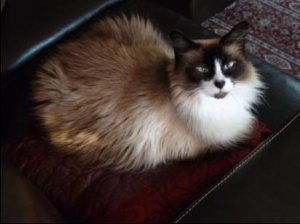


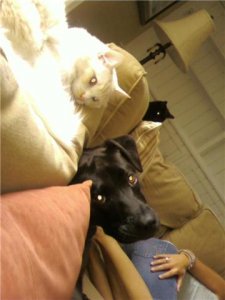
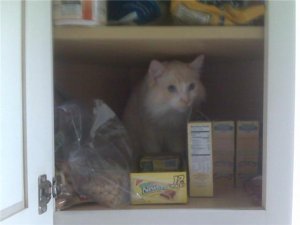
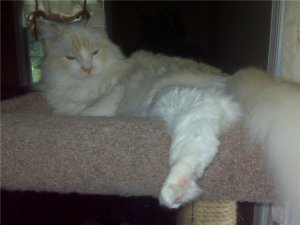















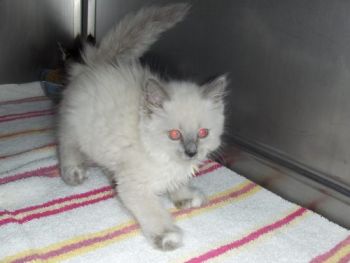
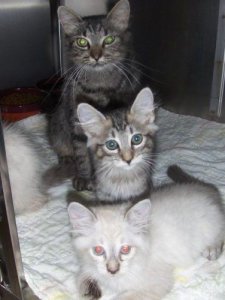
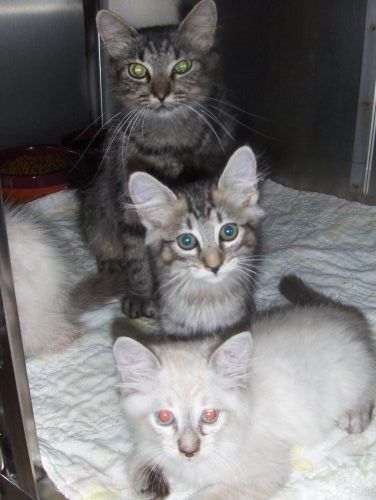


300x240.png)